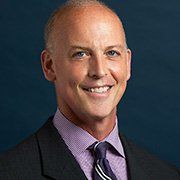Interview
Changing the Future of Health Care
Kevin J. Mullaney, MD
This month you graduate your 50th class from your fellowship program. Please tell us something about the first class.
The John H. Moe Spine Fellowship program is named for our founder and a true pioneer of spine care, Dr. John Moe. Over the past 50 years, the program has trained 189 spine surgeons from 16 countries. Our first John Moe Fellowship class started in 1971, and it focused primarily on the care and treatment of scoliosis. There were two fellows in that initial group that graduated in 1972: Dr. Claudio Pedras, from Brazil, and Dr. Edgar Dawson, who later became chief of staff at both UCLA and Shriner’s Hospital in Los Angeles. Dr. Dawson also served in 1995 as the President of the Scoliosis Research Society (SRS), which Dr. Moe had helped to establish and served as its first president in 1966.
Over the years, how has the program both changed and remained the same?
The program has grown in a number of ways. As our practice grew, we were able to expand the number of yearly fellows we desired to accept and train. We typically have four fellows a year now, who rotate among the 10 Board Certified and Fellowship Trained surgeons that make up Twin Cities Spine Center.
The emphasis of the training has also grown—from primarily scoliosis and spinal deformity care to all conditions of the spine, including degenerative, traumatic and tumors. Perhaps the most dramatic change to our program was the addition of cervical pathologies, which now make up roughly 30-40% of our patients.
What has remained constant in our program and our practice is our commitment to excellence, leadership, education, research and outstanding patient care.
What can you tell us about the kind of person that is drawn to your program?
Our fellowship program attracts orthopaedic and neurosurgical trained surgeons interested in subspecializing in spine and seeking a training program that will provide a large and diverse number of spine patients. Twin Cities Spine is known for seeing some of the most complicated spine cases, as well as doing what would be considered more routine spine care and surgery of the lumbar, thoracic and cervical spine. Our teaching surgeons use a wide variety of surgical approaches, from traditional open surgery to minimally invasive techniques and robotic assisted procedures. Applicants choose our program because it is comprehensive in the sense that we emphasize conservative care, taught by a balance of clinical assessments, research and surgical exposure. Because our fellowship includes a research component, we also attract applicants with an interest in research and academics. We seek applicants who are ethical, moral and come with a strong training foundation. We look for self-motivated individuals with early positions of employment or responsibilities requiring the use of their hands. We realize our reputation is a key part of our identity, and this, thankfully, has allowed us to maintain a strong pipeline of outstanding applicants from all areas of our country and beyond our borders.
What has remained constant… is our commitment to excellence, leadership, education, research and outstanding patient care.
Looking at the last 50 years, what have been some of biggest advances in your specialty?
Over the past 50 years, we have seen a significant number of advances in regard to techniques applicable to spinal pathology. This ranges from minimally invasive techniques to robotic-assisted procedures and high-tech CT-guided instrumentation, placement and confirmation. We have been able to care for patients with more spinal pathologies with less morbidity.
There have also been significant advances in perioperative pain management, which often allows us to perform surgeries with a shortened length of hospital stay or same-day discharges. Patients are able to return back home sooner to familiar surroundings and comfort. Imaging of spinal pathology has also been greatly enhanced with the onset of 3D images, robotic reconstruction, high-grade MRI and CT.
What kinds of research/clinical trials is your practice working on?
We study surgical and non-surgical treatments for adult neck and low back disorders and adolescent idiopathic scoliosis. We also investigate related topics like the effectiveness of osteobiological agents for bone healing and the prevention of postoperative surgical site infections. And we seek to evaluate new and developing technologies such as minimally invasive techniques and robot-assisted spine surgery.
The fellows in our program are required to take on at least one research project during their year with us. They have the support (and extensive data) of the Twin Cities Spine Research Department as they set out to answer a spine specific research question. The ultimate goal and expectation of this project is a completed and published article in a peer-reviewed medical journal.
Please tell us about how Fellows interact with other health care professionals as part of the care team that serves your patients.
Our fellows play an integral role amidst the teams that care for and support our patients. These teams include the partner surgeon, physician assistants, nurse practitioner, social worker, RNs and ancillary support staff. In their role as fellows, they are under the supervision of a TC Spine surgeon. Fellows rotate quarterly with the various spine teams and take part in clinical exams, non-operative management, surgical decision making and planning, observing and assisting in the OR, consulting on cases in the ED, rounding on patients in the hospital and conducting follow up with patients. Fellows also work closely with our research department as they pursue their spine research projects.
We have a Thursday Lecture component to our program which brings guest lecturers in to present and dialogue with our fellows. These guests are leading providers in a variety of subspecialties including radiology, neurology, pain medicine, orthotics, chiropractic and others. We emphasize collaborative and coordinated care.
On Monday mornings, the fellows present cases and research to our staff surgeons and others at a 60-90 minute spine conference. These conferences (excepting the first Monday of the month) are open to all providers interested in learning and dialoguing about optimal spine care.
Is there a key emphasis or learning that your program seeks to teach fellows?
Perhaps the thing we work hardest to impart to our fellows is best summed up in a phrase used by my mentor and our past fellowship director, Dr. Ensor Transfeldt, who always taught that “the decision is more important than the incision.” The decision occurs between the surgeon and patient—listening to the patient’s concerns, priorities, goals and expectations and truly understanding the unique factors and needs of the individual patient in order to determine if surgery should even be an option. That decision process is more important than the type of incision (the technique of surgery) that might be performed.
We train spine surgeons. But we first want to train them to be excellent spine clinicians. Getting an accurate patient history, conducting a thorough exam and knowing when to seek additional diagnostics is key. Arriving at an accurate diagnosis is paramount for treatment planning. We emphasize conservative management.
How does having the role of teacher/trainer impact the spine surgeons at Twin Cities Spine Center?
We see the fellowship as an integral part of our fabric at the Twin Cities Spine Center. We view our fellows as colleagues that have come to us from all parts of the country and the world. They bring new ideas and techniques, and they are inherently inquisitive. Frankly, this keeps us, as the trainers, current. When your practice is training the next generation of spine surgeons, you need to be at the forefront of the specialty. You need to know about what’s new, up and coming, as well as what works and what doesn’t and why. You need to have solid expertise and be able to clearly explain foundational decision-making as it relates to spine care.
The fellowship program adds a level of enthusiasm to what we do and a stimulation to be better. It’s a great pleasure to share one’s own sense of specialty and expertise with others. And it is satisfying to have a hand in changing health care for the future.
What are some examples of reasons a primary care physician would refer a patient to your practice?
We are a surgically conservative spine specialty practice. We are experts in the care and decision making for patients with spinal pathology and deformity. At times, patients do benefit from surgical procedures. Oftentimes primary care providers refer patients to us that have radiating arm or leg pain with or without weakness, problems with balance or scoliosis. We treat all aspects of spinal disease for all ages.
What about your program makes you the most proud?
It has been my honor to be the fellowship director at the Twin Cities Spine Center over the last decade. While this is only a small fraction of the time since this program was created by Dr. Moe, I can state with certainty our program has always held the patient first and we never apply shortcuts to their care. We have always sought to be the leader in spine care not only in the region, but in the national and international forums as well. We invest heavily in education, as our 50 years have proven, as well as research and continued innovative techniques.
We are very encouraged we have earned a reputation as a top program, as indicated by the sheer volume of applicants, the numerous calls we receive from applicants’ residency program directors and the feedback we receive from the applicants with whom we have met. This year, we “matched” with all of our top four candidates for the 2023-2024 fellowship year. The future is bright.
Kevin J. Mullaney, MD, has been fellowship director of the John H. Moe Spine Fellowship Program at the Twin Cities Spine Center since 2012. Dr. Mullaney completed his John Moe Spine Fellowship in 2004.
MORE STORIES IN THIS ISSUE
cover story one
Optimum Medical Care: The role of telemedicine
By Wayne Liebhard, MD
cover story two
Outstate Behavioral Health Care: Meeting the challenges and needs














